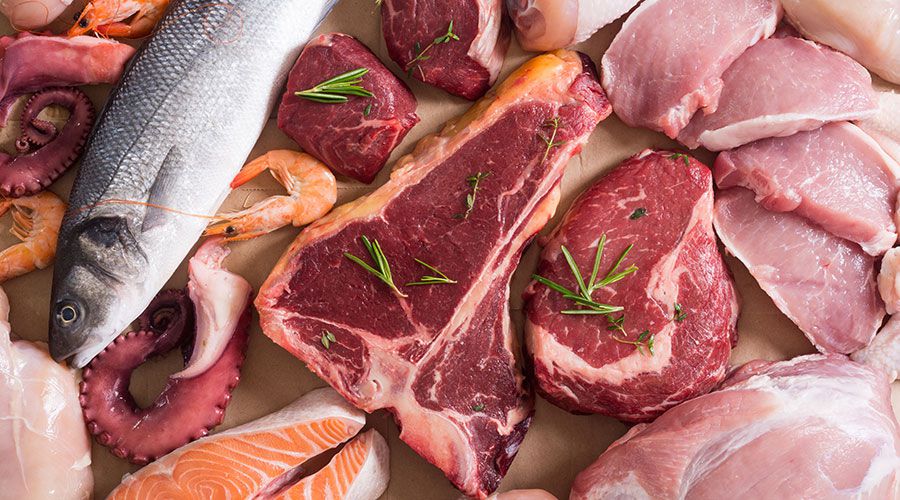
We're all making a conscious effort to be a bit healthier these days, aren't we? We diligently reach for those virtuous-sounding options, often convinced we're doing our bodies a world of good. But here’s the rub: sometimes, even those so-called 'good' choices can be playing absolute havoc with our poor tummies. It’s a genuine minefield out there, especially when it comes to gut health, which we now know is utterly crucial for everything from our immune system to our mood.
So, let’s have a proper look at some of these sneaky culprits that might be upsetting your digestive harmony.
Foods you think are healthy but are wrecking your gut
1. Artificial Sweeteners
You might genuinely believe you're doing your gut a solid favour by swapping out regular sugar for artificial sweeteners like aspartame, sucralose (often found in 'Splenda'), or saccharin. The idea is to cut calories and avoid blood sugar spikes, which sounds sensible on paper. But hold your horses! A growing body of research is suggesting these synthetic sweeteners aren't quite the benign sugar alternatives we once thought.
Some studies indicate they can actually alter the delicate balance of your gut microbiome, leading to shifts in bacterial populations that could promote inflammation and even affect glucose metabolism in ways similar to sugar itself. It seems our sensitive gut bugs aren't particularly keen on these chemical concoctions. If you're genuinely after a low-calorie option, perhaps explore natural alternatives like stevia or monk fruit, though even with these, moderation and paying attention to your body's response are key.
ALSO READ: 6 reasons people become more attractive after heartbreak
2. Dairy Products
Now, dairy's a really tricky one, isn't it? For individuals with diagnosed lactose intolerance, it's a complete no-brainer – consuming dairy will inevitably lead to bloating, gas, stomach cramps, and all sorts of other deeply unpleasant digestive chaos. This is due to the body's inability to properly break down lactose, the sugar found in milk. However, even if you don't consider yourself lactose intolerant, some dairy products can still cause significant issues for your gut.
Many people react to casein, a protein in dairy, which can trigger inflammatory responses or simply be difficult for their digestive system to process efficiently. It's definitely worth paying very close attention to how your gut feels after enjoying your morning cereal with milk, a cheese and crackers session, or even a creamy sauce. Listen to your body; if dairy consistently leaves you feeling sluggish, bloated, or gassy, it might be worth exploring dairy-free alternatives.
READ ALSO: 17 clear signs of low self-esteem in women
3. Fried Foods
Alright, so let's be honest, we all know deep-fried food isn't exactly making the cut for a super-healthy diet. But it's worth reiterating just how detrimental it can be to your gut health. Fried foods are typically loaded with unhealthy fats, such as trans fats and saturated fats, and they're often cooked at extremely high temperatures. This process can produce nasty compounds that are highly inflammatory.
When these compounds hit your gut, they can disrupt the integrity of your gut lining, leading to increased gut permeability (often called 'leaky gut'). This can allow undigested food particles and toxins to pass into your bloodstream, potentially triggering systemic inflammation and a less diverse, less resilient microbiome. It's a proper assault on your digestive system. Best to stick to grilling, baking, air-frying, or steaming when you're preparing your meals to keep your gut happy.
ALSO READ: Finding Freedom: Bible verses to help you overcome guilt
4. Red Meat (in Excess)
A Sunday roast, a juicy steak, or a hearty shepherd's pie – lovely, aren't they? And in moderation, red meat can be a good source of iron and protein. However, frequent and excessive consumption of red meat, particularly processed varieties like sausages and bacon, can contribute to significant gut inflammation and may even be linked to an increased risk of colorectal cancer. Red meat can also negatively affect the delicate balance of bacteria in your gut.
Specifically, some studies suggest that compounds in red meat, like L-carnitine, can be converted by certain gut bacteria into trimethylamine N-oxide (TMAO), which has been associated with heart disease. For optimal gut health, it's generally advisable to limit your red meat intake. Perhaps try opting for leaner protein sources like fish (especially oily fish for those beneficial Omega-3s), chicken, or plant-based proteins like lentils and beans a few times a week.
ALSO READ: Here are 9 ways to prevent bloating after eating eggs
5. Processed Foods
This is a really broad category, I know, but it's probably one of the biggest culprits. Think about your packaged goodies, ready meals, sugary breakfast cereals, crisps, and anything with a long, unpronounceable ingredient list. These foods are typically packed with a cocktail of additives, artificial colours, preservatives, emulsifiers, and unhealthy fats, all of which can severely disrupt your gut microbiome.
Ingredients like high-fructose corn syrup, artificial sweeteners (as mentioned above!), and certain emulsifiers have been shown in research to compromise the integrity of the gut barrier, leading to inflammation and a reduction in the diversity of beneficial gut bacteria. Furthermore, these highly processed foods are often critically low in dietary fibre, which is precisely what your gut bugs thrive on to produce beneficial short-chain fatty acids. Essentially, they starve the good bacteria while feeding the bad.








![Burkina Faso celebrates as Ibrahim Traore unveils made-in-Africa electric buses [Video]](https://sportal365images.com/process/smp-images-production/pulse.com.gh/11062025/8558c966-4f8d-4f59-bd16-80956686e33d.png)








Facebook
Twitter
Pinterest
Instagram
Google+
YouTube
LinkedIn
RSS